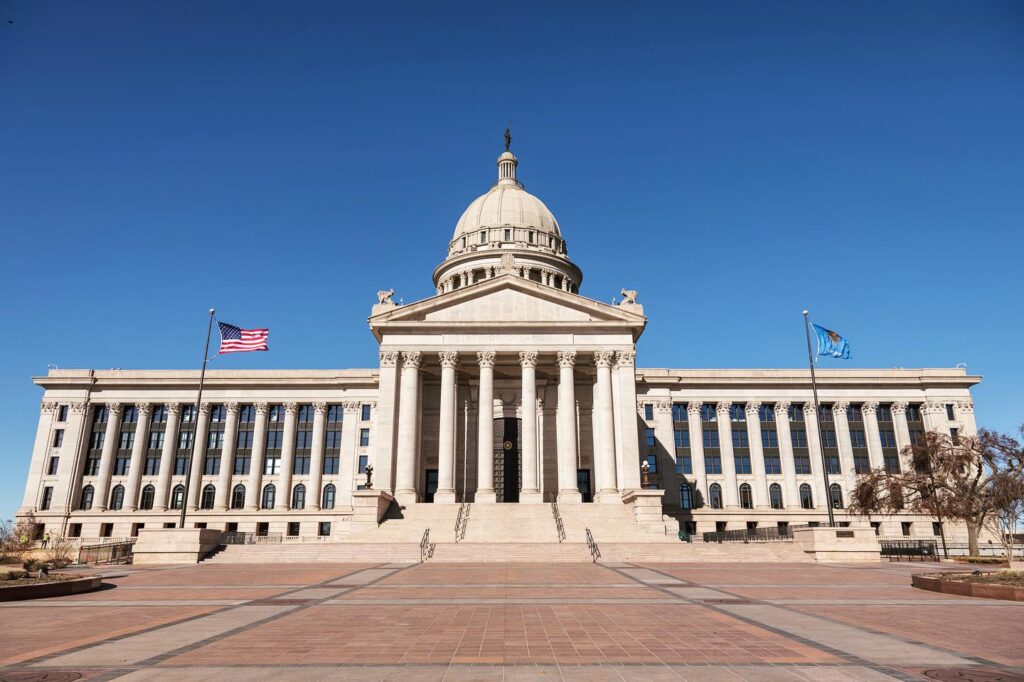
Leaders of the United Keetoowah Band of Cherokee Indians and the Kialegee Tribal Town were denied a gaming compact by Oklahoma’s Joint Committee on State-Tribal Relations but the fight is far from over.
The tribes look to offer gambling services outside their traditional boundaries in Oklahoma, as reported by The Duncan Banner.
Governor Disappointed With Decision
After failing to amend the central state-tribal gaming agreement in 2020, Oklahoma Governor Kevin Stitt decided to negotiate directly with two small Oklahoma tribes and ultimately drew up a compact that failed to pass muster with a joint legislative committee last week.
It’s not surprising that the negotiated compacts were rejected based on a ruling by the Oklahoma Supreme Court which nullified the compacts. In addition, Attorney General, Gentner Drummond, also suggested to the Joint Committee on State-Tribal Relations that they too should negate the compacts negotiated between Stitt and the United Keetoowah Band of Cherokee Indians and the Kialegee Tribal Town.
“Proper respect for the law compels the conclusion that the Joint Committee lacks authority to make valid that which the Oklahoma Supreme Court earlier declared to be invalid,” Drummond wrote this week in a letter to the legislators on the panel.
Over Expansion
Each of the compacts was site-specific for the proposed casinos but House Majority Leader Jon Echols said his major concern was the Kialegee Tribal Town compact could allow for another casino in Oklahoma County despite it being outside the tribe’s boundaries.
“I have extreme concerns with carte blanche expansion into Oklahoma County,” Echols said, adding that he is “very nervous.”
This was the chief concern for many members of the committee, believing the compacts would not only saturate the Oklahoma casino market but that it would infringe on territory that is otherwise spoken for by neighboring tribes.
Moreover, Attorney General Drummond wrote, “Proper respect for the law compels the conclusion that the Joint Committee lacks the authority to make valid that which the Oklahoma Supreme Court earlier declared to be invalid.”
The governor’s general counsel, Trevor Pemberton, defended the compacts negotiated between the two small tribes and the governor stating, “It would be, certainly on a financial basis, a great win for the state of Oklahoma for these agreements to move forward.”
Larger Tribes Disapprove
It should also be noted that other Oklahoma tribes like the Cherokee, Chickasaw, Choctaw, and Citizen Potawatomi nations named the U.S. Department of the Interior as the defendant in a federal lawsuit filed over the negotiated compacts as they believed their interests were being jeopardized.
Governor Stitt said, “If you read the tea leaves, it is probably because there is competition and they don’t want a precedent of a smaller tribe competing (for casino market share). It doesn’t take a rocket scientist to see what has happened here,” Stitt added.
Another big sticking point for the tribes was that these compacts required a higher tariff than those compacts in place for larger tribes. The current compacts denote that 4% to 10% of the revenues on slots, craps, and roulette are paid to the state.
Kialegee Tribal Town Mekko Stephanie Yahola believes smaller tribes are being muscled out by the larger tribes and said, “We just want to make money for our members and our community, too.”






